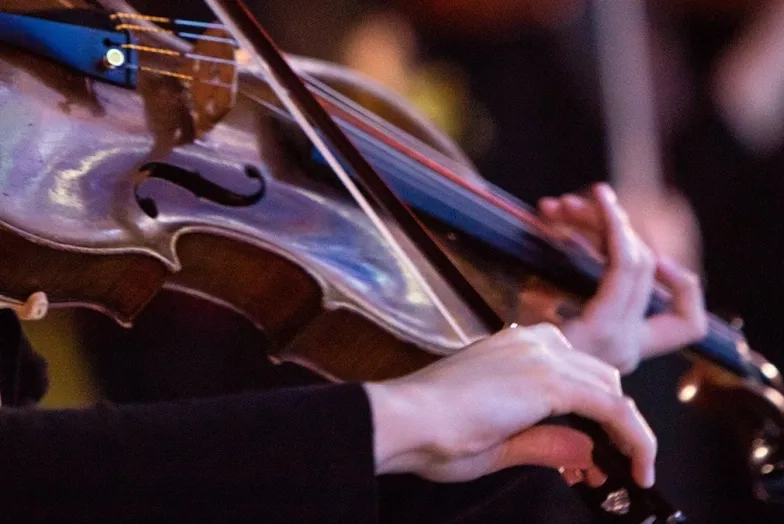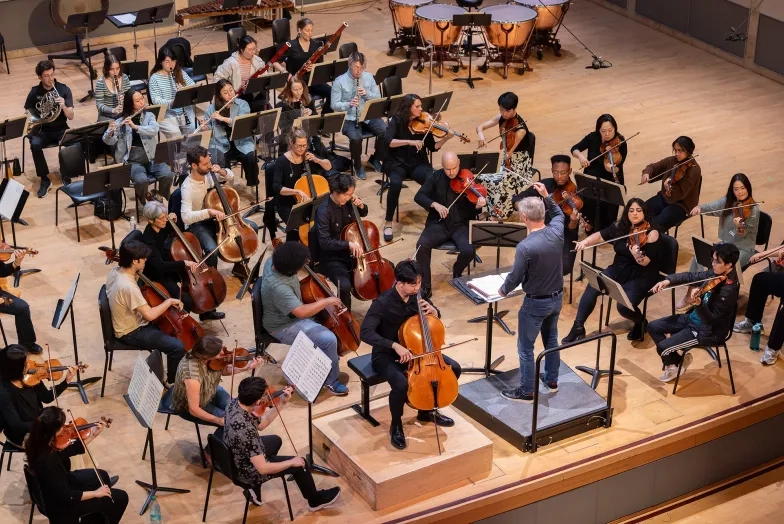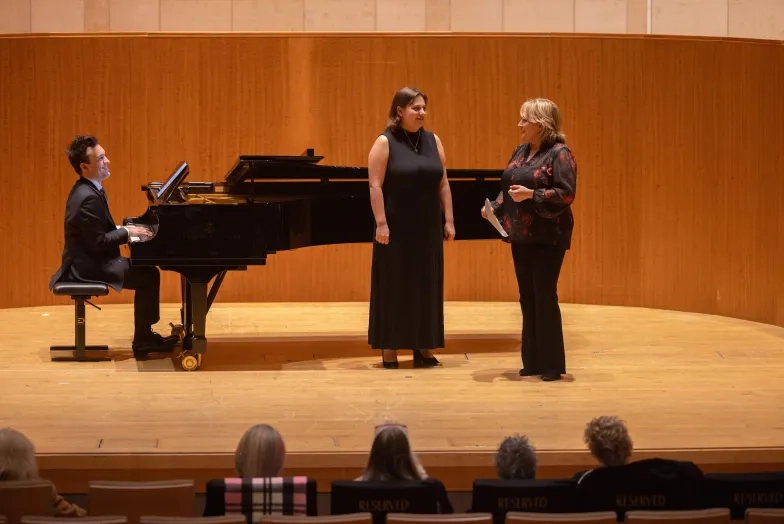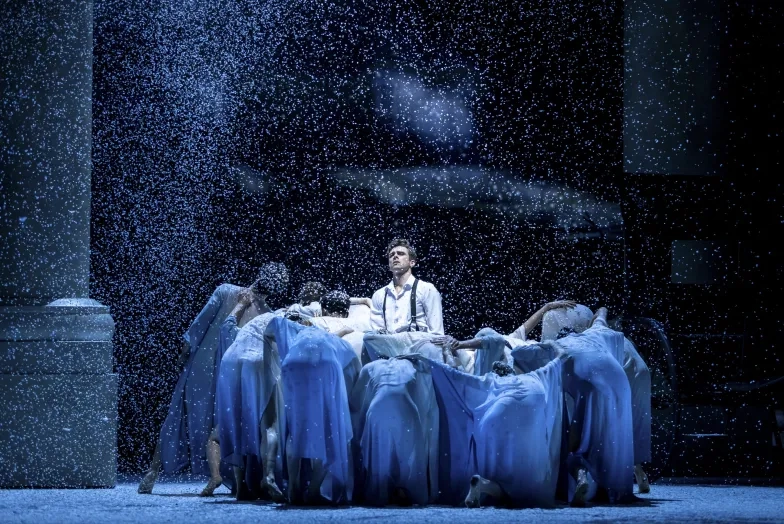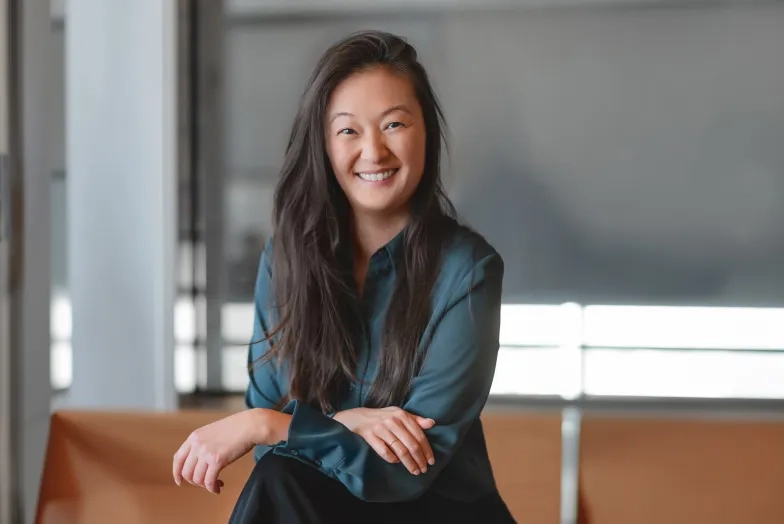Student Recital
Voice
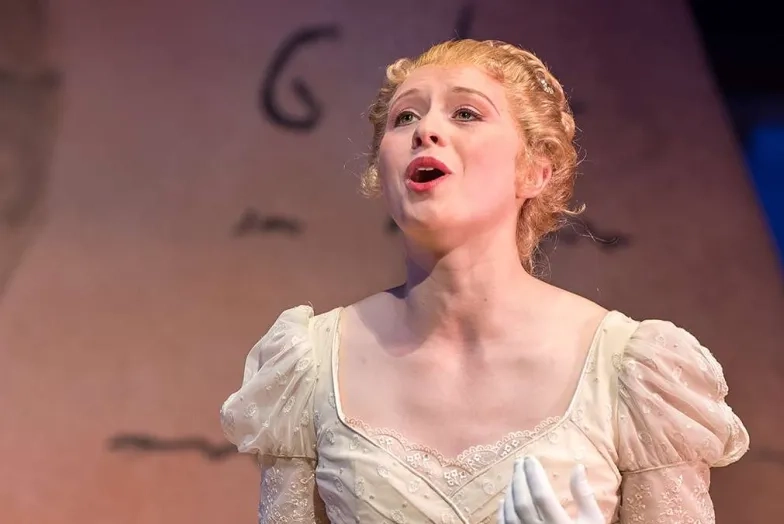
Thu
Feb
26
7:30 PM
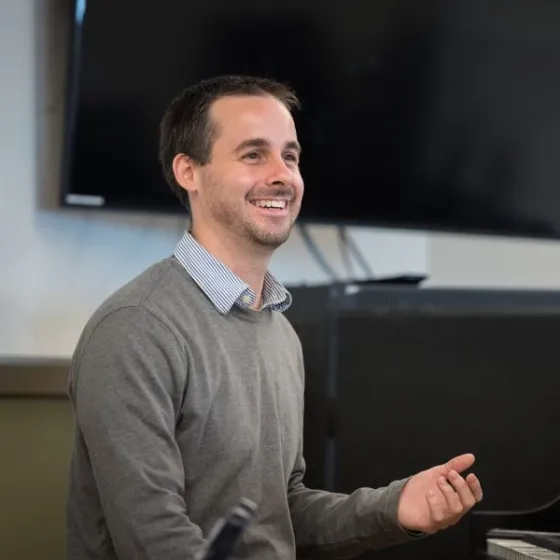
Courses Taught
Composition Workshop
Undergraduate Musicianship
Undergraduate Music Theory
Tonal Counterpoint
TAC Composition Seminar
Graduate Composition Seminar
Education
MM, San Francisco Conservatory of Music
BA, University of Wisconsin, Stevens Point
Ensembles
Schola Cantorum of St. Dominic's, 2014–Present
Awards and Distinctions
magna cum laude, University of Wisconsin, Stevens Point
...complex and yet instantly appealing, gorgeously tonal but not ‘old-fashioned.’”
What is your hometown?
Kohler, WI
What are you passionate about outside of music?
I love playing ice hockey. I've played in an adult league for almost two years, and it has been an amazing balance to my more cerebral activities. I also enjoy backpacking, cooking, wine tasting, and reading. I'm also a bit of a political junkie, and amateur cultural critic.
Who were your major teachers?
David Conte (composition), Scott Foglesong (music theory and piano), and Charles Rochester Young (composition).
What question do you wish students would ask sooner rather than later?
I'd suggest asking oneself (or one's teachers) two questions, one for head and one for heart: "What are the practice habits that will pay off the most in the long run?" and "How can I cultivate my sense of aesthetics and taste?"
What was the defining moment when you decided to pursue music as a career?
I actually came to music rather late! My parents enrolled me in band and choir in middle school, and I had had a few years of rudimentary piano before that.
But my freshman year of high school, I heard a friend play George Gershwin's Prelude No. 1 on the piano and became obsessed. I began teaching myself piano, and found a serious piano instructor. In both band and piano lessons, I was instinctively drawn to more modern harmonies, and almost immediately—and with lots of encouragement from my teachers!—began composing.
I remember being nervous about how late I had begun, and how little I knew. But there was no looking back, and no question of what I must do with my life.
If you weren't a musician or teacher, what do you think you would be doing now?
Sadly, I probably would have become a lawyer. Even worse, I probably would have been quite good at it. So naturally, I think it's a huge relief that didn't happen!
From a music history perspective, what year and city are most important to you?
I am quite torn between Paris in the first decade of the 20th century and New York City in the 1930s.
In Paris, Fauré was at the peak of his powers, as was Debussy. Ravel was establishing his own musical maturity. Vaughan Williams comes to study with Ravel, and it changes his career and thus the generation of English composers who follow. It was the dawn of the modern era, but the connection with 19th century aesthetics hadn't yet been irrevocably shattered by the First World War.
New York a few decades later was the epicenter of a burgeoning, truly American compositional style, which was almost singularly embodied in Aaron Copland and his modernist works of the decade—not to mention the close circle of composers, artists, and writers who surrounded him. It was also the decade of Samuel Barber's twenties, one of his more productive periods, and one which set the stage for later masterpieces.
What are your most important collaborations?
This is an admittedly tricky question for a young composer. But I'd say the premiere of my "Songs of Love and Solace" with an all-alumni chamber ensemble, soloist Michael Desnoyers (MM '10), and Jeffrey Thomas conducting. The sacred motets I have composed for Schola Cantorum of St. Dominic's have also been particularly meaningful to me in recent years. And finally, I must mention clarinetist Brenden Guy (MM '10), who has been responsible for bringing a number of my recent chamber works to life.
If you could play only three composers for the rest of your life, who would they be?
I suppose Bach is an obvious choice for sheer quantity, quality, and contrapuntal complexity. But I could play Johannes Brahms, Maurice Ravel, and Aaron Copland the rest of my life and never tire of any of it.
What is your unrealized project?
My biggest unrealized project is to compose a grand opera based on a stunningly true—truly operatic—revenge story from the early history of the American south.

